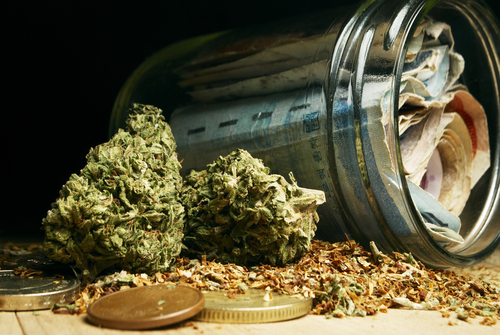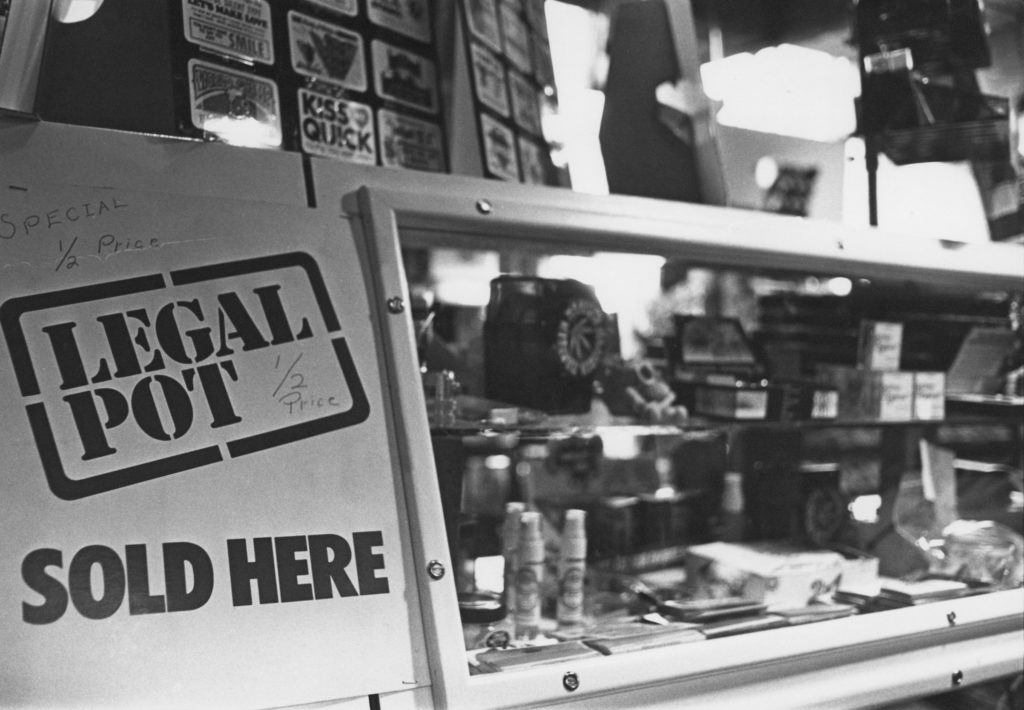As California cannabis businesses rush to get in line with new recreational rules, state lawmakers have proposed a measure that could give them some extra green to make it happen.
A bipartisan pair of California lawmakers have annouced a bill which would drop the state excise tax on cannabis to 11% from the current 15% for a period of three years.
As Leafly reported Thursday, the bill was introduced by Assemblymembers Tom Lackey (R-Palmdale) and Rob Bonta (D-Oakland) along with three Democratic co-authors.
The measure would also reportedly suspend a separate tax for cannabis cultivation in the state; overall, these breaks would amount to a 9% price drop for consumers, according to an outside assessment by New Frontier Data.
Since recreational cannabis became legal in California at the start of this year, medical marijuana dispensaries and cultivators have struggled to make the transition to a new market with new, often waitlist-requiring steps toward being licensed and legal.
Between legal cannabis’ banking challenges, the significant regulatory changes, and California’s booming grey and black market operators, smaller businesses in particular have had a lot to juggle in 2018.
In a statement, Lackey highlighted the pressure that legal businesses faced compared to their off-the-books competition. “Criminals do not pay taxes, ensure customers are 21 and over, obtain licenses or follow product safety regulations,” he said. “We need to give legal businesses some temporary tax relief so they do not continue to be undercut by the black market.”
California-based attorney Hilary Bricken, who’s witnessed this transition in two other states so far, commented in a recent interview that anything the state can do to promote legal operators will be critical for the industry’s success.
“The state’s own regulations calculated the markup on wholesale products to be 60%, which is already being felt by the consumer,” she said. Because of new rules putting a ‘sell by’ date on products from before January 1, 2018, there’s not a lot of inventory built up for stores to sell through the rest of the year; at the same time, Bricken explained, the “ridiculously high” cost of compliance means that most businesses are likely to fail before they get square under current conditions.A budtender (right) shows cannabis buds to a customer at the Green Pearl Organics dispensary on the first day of legal recreational marijuana sales in California, January 1, 2018 in Desert Hot Springs, California.
As Bricken predicted late last year, the cost of cannabis in many parts of California has now risen to between $15 and $25 a gram in the recreational industry’s first quarter. Some areas also continue to have little no legal access at all. “But in Colorado, Washington, and Oregon, you can get a gram for between $1 and $3, which is competitive with the black market,” she said.
In addition to offering financial support to legal cannabis operators, Bricken said, California should find a way to get more cities and counties on board with supporting and enforcing their share of the industry.
“The state really can’t go in and dragoon cities and counties because they have their own police forces, and if localities don’t sign on, it’s a moot point period. Large swathes of California will have no access at all.”
“We did it all before in Washington and Oregon, transitioning from medical to recreational, and it was just as painful, but on a much smaller scale,” she continued. “It may have been less impactful, too, though people not living near dense urban areas like Portland and Seattle certainly suffered.”
“This is just on another level of being a logistical nightmare. I think it’s surmountable, but it’s going to take much longer than the three to four years it took in Oregon and Washington for California to really stabilize.”
“Access is part of that equation. If you take that away, people will continue to break the law,” Bricken added. “Local communities are really standing in the way. It’s not uncommon, it’s just disappointing.”
credit:420intel.com













